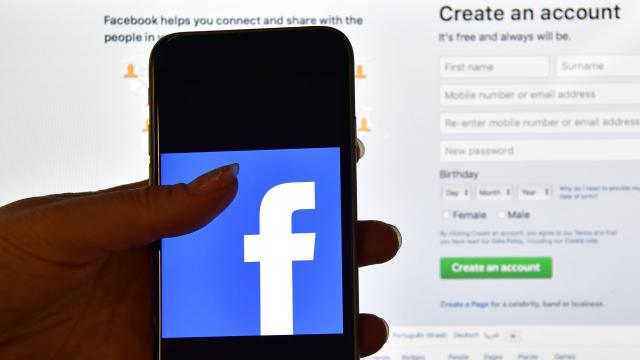For years, Facebook has insisted that it isn’t a publisher or media company but rather is just a platform. That position appears to have changed in a recent court appearance. The Guardian pointed out the social media giant’s legal defence referred to it as a publisher to bolster its case in a lawsuit.
The shift in how Facebook views itself occurred this week while the company was defending itself in court against charges brought by an app startup, which accuses Facebook of defrauding developers by cutting off their access to user data.
Facebook’s legal defence includes making the claim that it is a publisher and can exercise editorial discretion, as protected by America’s first amendment.
The case in question that has Facebook apparently experiencing an existential crisis about its identity comes from a startup called Six4Three, the makers of a now-defunct app called Pikinis, which — and no, this isn’t a joke — allowed users to filter photos to find people in bikinis.
Per The Guardian, Six4Three claims Facebook CEO Mark Zuckerberg engaged in a “malicious and fraudulent scheme” to exploit user data and force competitors out of business.
As part of the suit, the startup claims that Facebook got developers on the platform by promising unprecedented access to user information and personal data, then cut off that access in 2015. Six4Three believes that amounts to fraud.
Another part of the lawsuit claims that Facebook used its own apps to read text messages, track precise locations, and listen in to conversations using the microphones found in smartphones to gather information about people, according to HuffPost.
Those are some brazen claims, and ones Facebook rejects. But how the company is going about rejecting them is noteworthy, as the company is essentially defining itself as a publisher — something it has never wanted to do in the past.
In court this week, Sonal Mehta — a lawyer for Facebook — called the company’s decision to cut off data access a “quintessential publisher function,” per The Guardian:
“The publisher discretion is a free speech right irrespective of what technological means is used. A newspaper has a publisher function whether they are doing it on their website, in a printed copy or through the news alerts,” Sonal Mehta, a lawyer for Facebook, said in court.
That is a complete 180-degree shift for Facebook from its previous, publicly-stated position that it is in no way a publisher. The company has been completely adverse to any suggestion that it is anything but a platform since basically forever.
Here’s just a handful of examples of Facebook leadership rejecting being labelled as a “publisher” or something similar:
- Mark Zuckerberg, in an August 2016 speaking engagement at Rome’s Luiss University:
We are a tech company, not a media company.
- Mark Zuckerberg, in a December 2016 Facebook Live video (transcription via Business Insider):
Facebook is a new kind of platform. It’s not a traditional technology company. It’s not a traditional media company. You know, we build technology and we feel responsible for how it’s used. We don’t write the news that people read on the platform, but at the same time we also know that we do a lot more than just distribute the news, and we’re an important part of the public discourse.
- Chief Operating Officer Sheryl Sandberg, in an April 2017 interview with the BBC (transcription via CNBC):
I don’t think we have to be the publisher and we definitely don’t want to be the arbiter of the truth. We don’t think that’s appropriate for us. We think everyone needs to do their part. Newsrooms have to do their part, media companies, classrooms and technology companies.
- Sheryl Sandberg, in an October 2017 interview with Axios:
We’re very different than a media company. … At our heart we’re a tech company. We hire engineers. We don’t hire reporters. No one is a journalist. We don’t cover the news. But when we say that, we’re not saying we don’t have a responsibility. In fact we’re a new kind of platform … as our size grows, we think we have more responsibility.
- Mark Zuckerberg, during his April 2018 testimony before the US Congress:
I view us as a tech company because the primary that we do is build technology and products… I agree that we’re responsible for the content, but we don’t produce the content. I think when people ask us if we’re a media company or a publisher, my understanding of what they’re really getting at is do we feel responsibility for content on our platform. The answer to that, I think, is clearly yes. But I don’t think that’s incompatible with fundamentally at our core being a technology company.
That’s an awful lot of public attempts by the heads of Facebook to deny or at least deflect the suggestion that the company is a publisher, only to suddenly claim to be just that in court.
Natalie Naugle, Facebook’s associate general counsel for litigation, defended the approach in a statement to The Guardian. Here’s how she explained it:
Facebook explained in today’s hearing that we decide what content to make available through our platform, a right protected by Section 230. Like many other technology companies, we rely on the discretion protected by this law to police bad behaviour on our service.
The legal defence may well work for the social network as it fights the suit brought by Six4Three. It may also open Facebook up to new levels of scrutiny if it suffers from another fake news epidemic like it got hit with during the 2016 US presidential election, as the company seems to have shelved its primary excuse.
